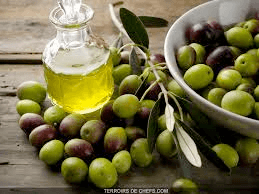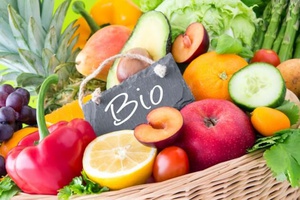To this day, in 2018, are you really aware, of what you actually put on your plate at every meal? Did you know that when you eat processed foods, you are slowly destroying your body? How can we consume properly?
Today, for an ever increasing industrialization and for a positive economic evolution, most of the agri-food companies destroy the food they sell. The methods are numerous and finally more and more eccentric as time goes by: addition of chemical flavors to accentuate the tastes or simply to bring new flavors, unlimited preservatives to sell for a longer period of time, pesticides to produce a maximum, etc... The methods are even sometimes strange: let's take the example of a vegetable oil extracted at high temperature which can, for example, be deodorized to be chemically reodorized a few moments later.
With all these food transformations and chemical alterations, what about the health of the consumer? Today, we can certainly no longer eat with confidence. In fact, the food we buy in supermarkets is mostly devoid of good food sense because naturalness no longer finds its place on the shelves. Even some fruits and vegetables can undergo transformations that impact the health of the consumer.

But then, how do you shop properly?
The consumer is now lost because he no longer knows how to consume consciously, and avoid the traps of the society which, one might think, wants to make us sick little by little.
- The first solution is to choose your supply methods carefully, favoring short circuits as much as possible. By consuming local products sold directly to the consumer, we avoid over-industrialization and the use of excessive preservatives that are harmful to the body. Today, many farms or market gardeners open a few days a week to offer the fruit of their harvest. Do not hesitate to visit them.
- The second resolution would be to decode every label on every food product. Although this may lengthen the shopping time of the week, it is an indispensable solution to buy and consume foods that are more or less healthy for the health. Nevertheless, let us note a very simple rule: the longer the list of ingredients, the less natural the product will be. The idea is really to avoid chemical disruptors that clog up the body by creating toxins that take up position in the different organic circuits.
- Of course, the third new attitude to adopt would be to eat organically grown food. The latter are more interesting for health because they are free to a certain extent of pesticides and by-products. The crops are studied and worked differently, with a beneficial objective for the final consumer.

Focus on the organic label
"Organic agriculture is a method of agricultural production that excludes the use of synthetic chemicals, used in particular by industrial and intensive agriculture since the beginning of the 20th century, genetically modified organisms, and irradiation. Its objective is to better respect the living and the environment. Secondly, it aims to manage production in a global way by promoting the agrosystem but also biodiversity, biological activities of the soil and biological cycles. It is opposed to the so-called conventional agriculture "since the products resulting from this culture are much more interesting for the health.
Doubt these tips? Are you skeptical about the organic label? I invite you to take the challenge of consuming consciously for a month. You would be surprised to discover the rapid and incredible benefits on your health, your vitality but also on your emotional well-being. Being constantly invaded by toxins produced by an organism tired of eliminating or by toxins from the food we eat exhausts the organism in the long term and leads little by little to illness.
Becoming an actor of one's health also means becoming aware that life is not always healthy for us. Going back to the roots and true values by consuming in a more natural and fair way is the future of those who will evolve in good health.